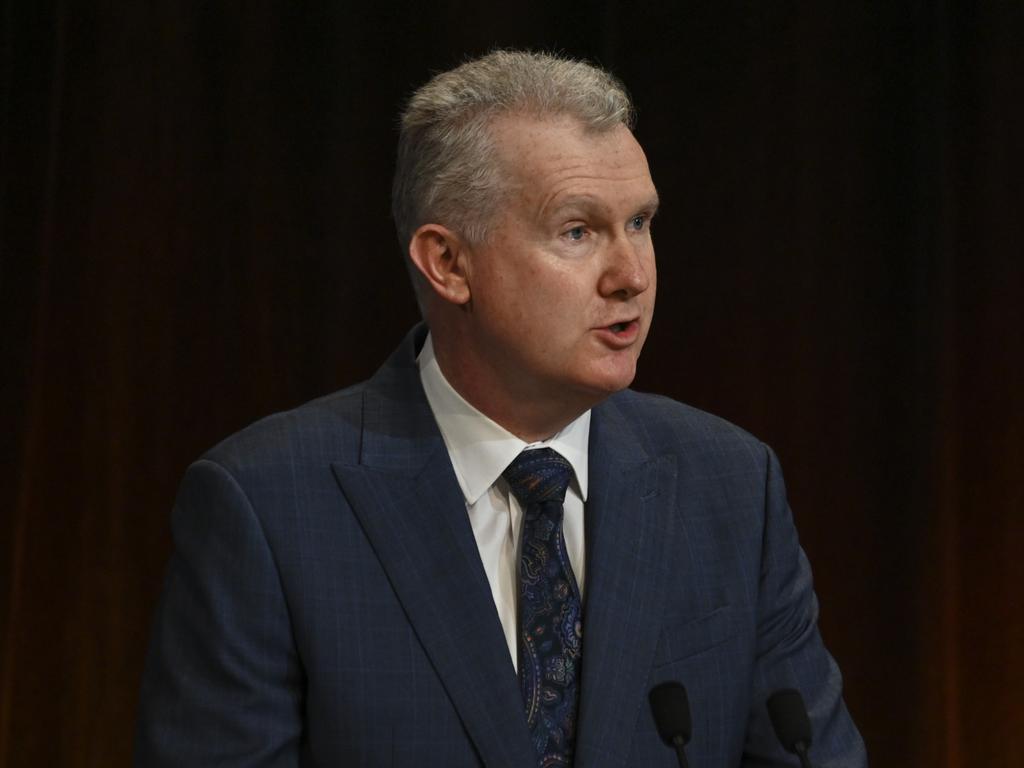IR bill raises doubts about Labor’s credentials


This bill is an act of political audacity. Labor has no election mandate for its most contentious aspects, multi-employer bargaining. It has singularly failed to produce evidence to justify its proposed policy. The bill fails two key tests – election authorisation and policy validation. It is a try-on, testimony to Labor’s ties to trade union needs.
Labor, by taking this stand, puts its political prestige and parliamentary management on the line. It needs to carry this bill to show its authority. Yet the bill reveals Labor’s weakness – the party presents as a modern economic manager but the bill is a step into the past, to the old, discredited, anti-productivity, regulatory complexity of the past. Much of the business community has been shocked by the scale of the try-on. If this is an omen of our future, it’s time to worry.
Burke’s concessions have been significant and they need to be. Business groups still oppose the bill but Burke, a skilled negotiator, must be rated a reasonable chance of getting an amended bill through the parliament.
The bigger story, however, is the contradictory nature of the Albanese government. How does the attempt to legislate a backward-looking industrial relations system sit with Labor’s declaration it wants a hi-tech, high-productivity, high-wage, high-skilled decarbonising economy?
It doesn’t. This is a government pulling in different directions. It seems confused about its identity. It seems trapped between old Labor and new Labor. Who is in charge? What is missing is the central policy co-ordination to ensure the government moves with the same purpose. The story here is the stark tension between political interests and economic interests. Anthony Albanese said he wanted good relations with business yet this bill has united the main business bodies against him. And for what? For next to nothing in terms of actual results.
Business Council of Australia chief Jennifer Westacott asked the crucial question on Tuesday: “Why should industries that already pay higher wages and bargain effectively be included in changes designed to lift the wages of low-income earners?” There is no answer.
There is near consensus about multi-employer bargaining for low-paid, heavily female represented workers in the health and caring sectors, but this bill sought to extend multi-employer bargaining up the labour market, triggering this brawling debacle. Yet the wage gains were improbable in terms of justifying Labor’s policy. Where is the centre of policy gravity of this government?
That’s what decision-makers are now asking. Do senior ministers get it? The Albanese government makes the right noises about economic change but seems to lack the policy mindset to deliver.
Burke keeps signalling a readiness to make more concessions to get the key senators, David Pocock and Jacqui Lambie, over the line. His flexibility is good news. Labor’s determination to finalise the bill before Christmas gives the business groups and the Senate crossbench leverage to extract concessions.
The government made two political miscalculations – it misjudged the unity and vehemence of the main business groups in opposing the extension of multi-employer bargaining and it misjudged the Senate, assuming too readily it would win progressive support.
Indeed, the IR debate has become a test case of how the new parliament will function. Pocock might be a harder nut than many expected.
As for the teals, they hold Liberal seats won on Liberal votes, with Kate Chaney signalling at the weekend she couldn’t support the bill in its current form.
Last week, Jim Chalmers told the Economic and Social Outlook Conference in Melbourne he wanted evidence-based policy. That’s good news. It is, however, missing from the Secure Jobs, Better Pay Bill.
In his second reading speech, Burke said the law needed to be changed to promote job security since insecurity now had many faces. That’s the union mantra.
But how serious is the rise in job insecurity? In the recent Melbourne Institute compendium for its 60th anniversary year, labour market expert Mark Wooden reviewed the data and concluded “the likelihood of an Australian worker being involuntarily removed from their job was, at the start of 2022, both very low and less than it has been at any other time during the past 40 years”.
Wooden found the number of casual workers had changed little over the past two decades – repudiating the ACTU claim that job insecurity had reached crisis levels. Wooden found “very little evidence” to buttress this claim.
He warned that Labor’s efforts to limit non-traditional forms of employment could be counter-productive.
In a separate analysis, Wooden found based on OECD data that company-level bargaining delivered superior wage gains to multi-employer bargaining. Wooden told last week’s annual conference run by the Melbourne Institute and The Australian that “a switch to multi-employer bargaining is no guarantee that wages are going to improve”.
Wooden reported in The Conversation that he compared over 2011-21 the 14 OECD nations with multi-employer bargaining with 12 OECD nations where company-level bargaining dominated, with the latter delivering annual real wages growth at 2.3 per cent compared with 0.6 per cent for the former. In short, the company model was four times more superior to the multi-employer model in terms of wages growth. Wooden has publicly questioned the utility of the new bargaining stream promoted by the unions and Labor.
The Fair Work Commission has just delivered a 15 per cent pay rise for aged-care workers – yet it is ludicrous to think anything remotely like this could have been achieved by multi-employer bargaining. There is too much politics and too little evidence in Labor’s bill. The fastest way to deliver higher wages for the low paid is through the award system. The “common interest” test at the heart of the multi-employer proposal is too broad, too loose, almost sure to lead to confusion, weaken competition and deliver substandard wages.
The IR system won’t revert back to the 1970s. Any such talk is nonsense. The point is that neither Labor nor the unions have produced the evidence to justify these changes. Albanese may win the political battle over this bill but Labor won’t win the economic war it must prosecute if this constitutes its mindset.
Where the bill finishes defies prediction. Burke insists the bill is “essential and urgent”. Australian Industry Group chief executive Innes Willox said at the start of the week the bill remained “fatally flawed”. Westacott said that even with Burke’s concessions “we run the risk that critical industries like mining, energy or our ports” could be swept up in disruption.
At a precise time of economic vulnerability Labor is compounding that vulnerability. Labor’s line that it wants to ensure “that wages get moving” is the cover story for its misplaced audacity and flawed policy. This is not what the Jobs and Skills Summit envisaged. Labor is sowing seeds of mistrust.







The Albanese government and Workplace Relations Minister Tony Burke have an imperative political interest to secure their Fair Work industrial relations bill – defeat would constitute a devastating policy and psychological blow exposing the depth of Labor’s misjudgment.